
Faculty
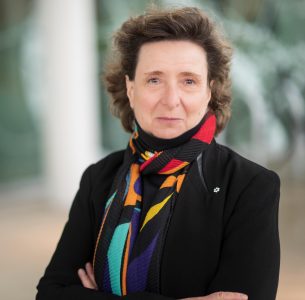
Judy Illes, CM, PhD, FCAHS, FRSC
Dr. Judy Illes, trailblazing neuroethicist, is Professor of Neurology at the University of British Columbia (UBC), Distinguished University Scholar, UBC Distinguished Scholar in Neuroethics, and Director of Neuroethics Canada. She holds appointments in UBC’s School of Population and Public Health, and in Journalism, and in the Department of Computer Science and Engineering at the University of Washington, in Seattle. She is a pioneer of the field of neuroethics through which she has made groundbreaking contributions to cross-cultural ethical, legal, social and policy challenges at the intersection of the brain sciences and biomedical ethics.
Dr. Illes received her PhD in Hearing and Speech Sciences and in Neuropsychology from Stanford University in 1987, and turned to ethics in 2000, 25 years ago. She was among the first to use high density EEG recordings and pattern recognition to understand language processing in neurodegenerative disease, and was part of the revolution that functional MRI introduced. Together with a vision for ethics for neuroscience led from within the neurosciences, Dr. Illes has not only placed neuroethics on the world map of, but has tirelessly trained the generation that leads it today, and already those who will lead it tomorrow.
With her expertise in both neurosciences and ethics, Dr. Illes has served in major USA leadership positions, including the first group that formed the Forum on Neurological Sciences at the National Academies of Science, Engineering and Medicine where the term connectome was coined. She is the academic lead of the working group convened by Health Canada on neurotechnology ethics, in response to OECD’s principles established in 2018 which she helped to draft, is Canada’s delegate to UNESCO today on this subject, and she has served as an expert advisory for the World Health Organization.
Dr. Illes has published 11 edited volumes, including three handbooks in neuroethics and as Editor in Chief of the series of volumes for Developments in Neuroethics and Bioethics. Volumes have been devoted to ethics in pain across the lifespan, global mental health, do-it-yourself neurotechnology, neurodevelopment, transnational law and ethics for neuroscience, neuroarchitechture and neuro-AI. She has led major research projects and hundreds of publications on invasive and noninvasive technologies, fixed and portable imaging systems such as MRI, biologics, pharmaceuticals, and devices, open science and intellectual property protections. In 2023, she released an award-winning film on neurotechnology ethics and decision-making for children with drug resistant epilepsy. Dr. Illes has also contributed significantly to the Canadian landscape in understanding crosscultural perspectives on brain and mind, including those of Indigenous People. She has received countless awards and recognitions for her empirical work and her mentoring alike.
Dr. Illes places a particular emphasis on issues of ethics in neuroscience with attention to biomedicine, innovations that seek to alleviate the burden of psychiatric and neurologic disease, including spinal cord injury, both expected and unexpected incidental findings, holism, human rights and health disparities. With this open and broad perspective, she capably leads the seven-nation International Brain Initiative dedicated to global neuroscience that is inclusive and politically free. To this end, Dr. Illes is tapped frequently by the international ethics, neuroscience, and engineering communities, by the media for public comment, and by governments around the world for her wisdom and guidance.
Dr. Illes was awarded the Order of Canada, the country’s highest recognition of its citizens, in 2017.
Contact me!
View Dr. Illes' CV here (PDF).

Julie M. Robillard, PhD
Dr. Julie M. Robillard is an Associate Professor of Neurology at the University of British Columbia (UBC), Scientist in Patient Experience at BC Children’s and Women’s Hospital (C&W). She is an affiliated researcher with the BC Children’s Hospital Research Institute, the Women’s Health Research Institute, the Djavad Mowafaghian Centre for Brain Health, and Vancouver Coastal Research Institute.
Dr. Robillard holds a PhD in Neuroscience and completed a Postdoctoral Fellowship at the National Core for Neuroethics where she studied the quality and the ethics of eHealth and social media content about brain health.
As an Associate Professor and Scientist, she now leads the Neuroscience, Engagement and Smart Tech (NEST) lab and oversees a range of initiatives related to patient experience research at C&W. Dr. Robillard brings her background in neuroscience and biomedical ethics to the evaluation and development of novel technologies to support brain health across the lifespan. A particular interest of her research is the integration of emotion modelling in a wide range of technologies, from eHealth resources to mobile apps. More recently, she has secured one of the inaugural New Frontiers in Research grants to implement emotional alignment algorithms into social robotics. Together with her team and through international interdisciplinary collaborations, she is exploring co-creation processes, development and applications of social robots in both older adult and youth populations.
Dr. Robillard is passionate about patient engagement and in her role as a Scientist in Patient Experience she is working with a number of groups at C&W and UBC to advance the capture, analysis and improvement of patient experience in both research and care. She is interested in using technology to provide novel means of engagement and patient experience evaluation strategies.
Dr. Robillard holds provincial, national and international leadership roles: she is Chair of the Ethical, Legal, Social Impacts Committee of the Canadian Consortium on Neurodegeneration in Aging, a member of the Technology and Dementia Executive Committee of the International Society to Advance Alzheimer’s Research and Treatments, and a member of the Board of Directors of the Medical Device Development Centre of British Columbia, among others.
Contact me!
View Dr. Robillard's CV here (PDF).
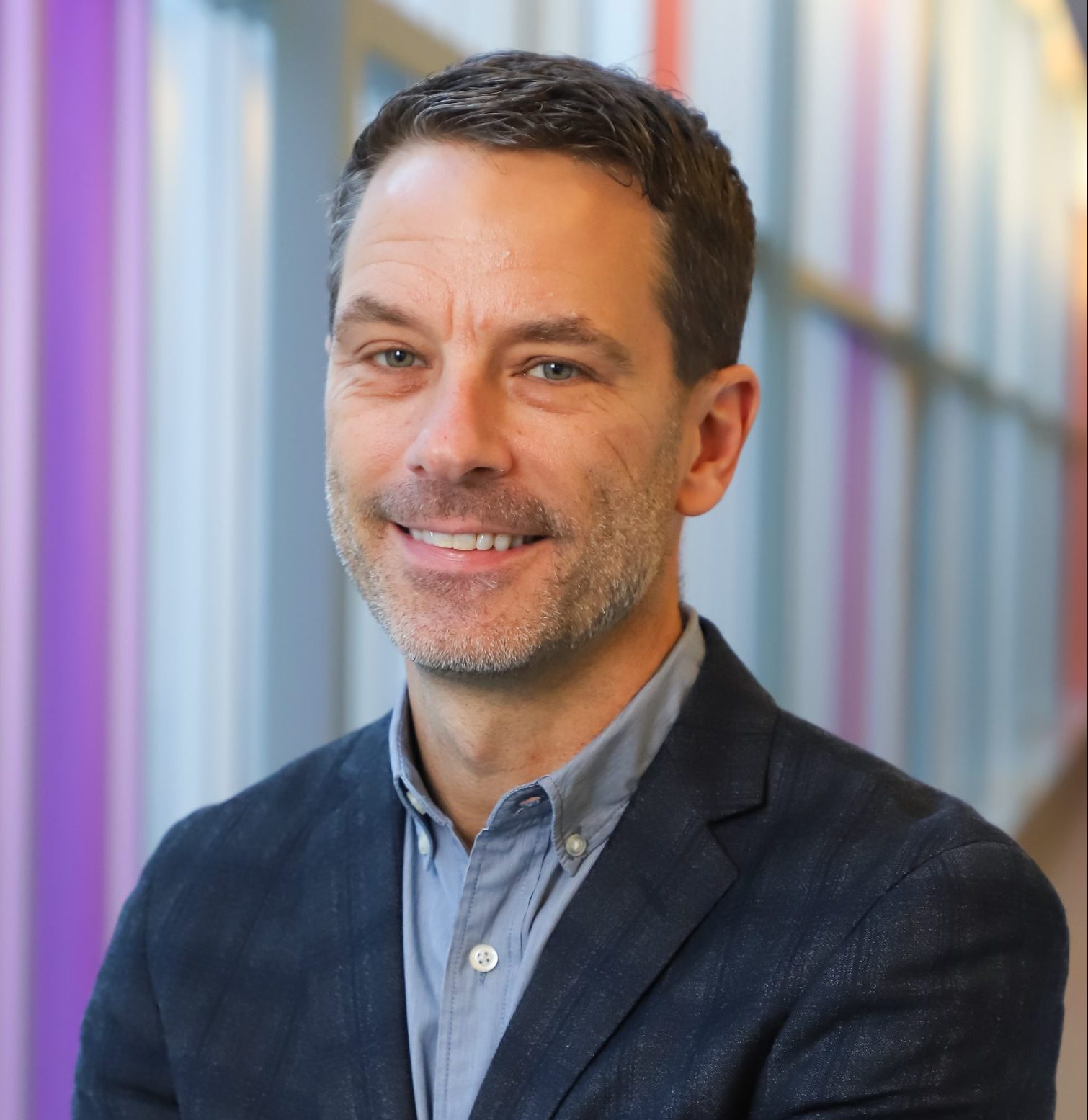
Patrick McDonald, MD, MHSc, FRCSC
Dr. Patrick McDonald is a Pediatric Neurosurgeon at Winnipeg Children’s Hospital, Head of the Section of Neurosurgery at the University of Manitoba, and a Faculty Member at Neuroethics Canada in Vancouver, BC. He is Chair of the Ethics Committee of the Royal College of Physicians and Surgeons of Canada and Past President of the Canadian Neurosurgical Society. For twenty years, he has combined a practice caring for children with neurologic illness with an interest in the ethical issues that surround that care. Collaborating with Professor Judy Illes, Director of Neuroethics Canada, he studies the neuroethical issues inherent in the adoption of novel neurotechnologies to treat brain illness.
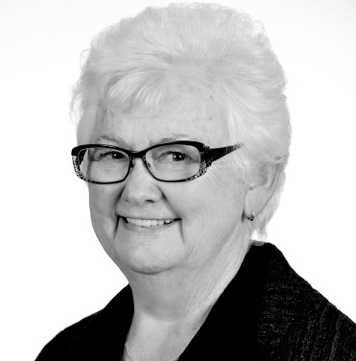
B. Lynn Beattie, MD, FRCPC
Dr. Beattie is Professor Emerita, Division of Geriatric Medicine, Department of Medicine, at the University of British Columbia. She is the former Director of the Clinic for Alzheimer Disease (AD) and Related Disorders at UBC. In addition, Dr. Beattie has been involved with a number of research activities. These include the multi centre Canadian Quality of Life in AD Study, a number of clinical trials in AD, a look at psychological resilience and well-being of spousal caregivers of persons with dementia, development of psychosocial indicators of oral health-related quality of life in three ethnic groups, genetic epidemiological study of AD, brain power, resistance training and cognitive function in older women. Other activities included participation in the Executive Committee of the BC Network for Aging Research and in the Centre for Research in Personhood in Dementia. Dr. Beattie is on the Board of the Alzheimer Society of Canada as Chair of the Research Policy Committee. She has been on the Executive of C5R (Consortium of Canadian Centres for Clinical Cognitive Research) and is former Scientific Director for CHAP, the Centre for Healthy Aging at Providence at Providence Health Care in Vancouver. She is President of the Board of PARF, the Pacific Alzheimer Research Foundation. In the past, Dr. Beattie started and was the first Head of the Division of Geriatric Medicine at UBC, initially based at Shaughnessy Hospital and in later years at Vancouver Coastal UBC/VGH. She is Past President of the American Geriatrics Society and the Canadian Geriatrics Society.
View Dr. Beattie's CV here (PDF).
Students, Postdocs, Visiting Scholars, Researchers, and Staff
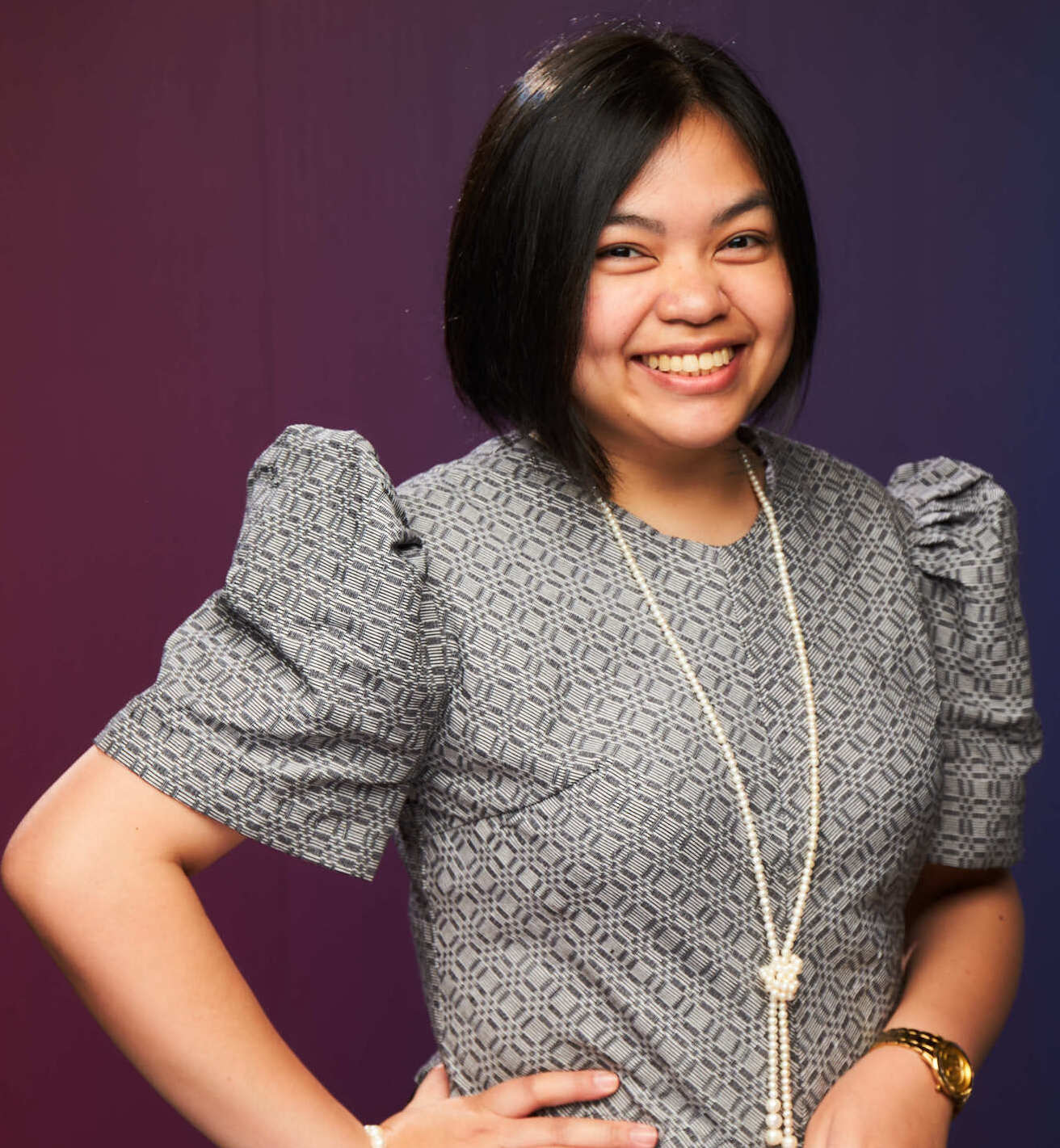 Marianne Claire Bacani, BA, CMP-HC, HMCC, is an Events and Operations Director at Neuroethics Canada, University of British Columbia (UBC). Marianne received her B.A. in Psychology with a minor in Philosophy at UBC in 2012. She obtained her Certified Meeting Professional (CMP) designation in 2019, and her CMP-Healthcare designation in 2024, both from the Events Industry Council. She also completed her Healthcare Meeting Compliance certification from the Meeting Professionals International in 2024. In addition to managing all aspects of event planning, including communications, production, and guest engagement, Marianne also oversees finance, administrative, general communications, graphic design, and basic human-resource related matters at Neuroethics Canada. With more than eleven years of planning, organizing and executing high-profile local, national, and global medical and community events, Marianne ensures the consistent delivery of quality events following policies and service industry standards. She brings her passion for knowledge dissemination and community engagement to her active work with local non-profit organizations who promote health literacy, citizenship, the performing arts, and the empowerment of women. Marianne illustrates her eagerness for work excellence by continually embracing new opportunities to improve her professional and leadership skills.
Marianne Claire Bacani, BA, CMP-HC, HMCC, is an Events and Operations Director at Neuroethics Canada, University of British Columbia (UBC). Marianne received her B.A. in Psychology with a minor in Philosophy at UBC in 2012. She obtained her Certified Meeting Professional (CMP) designation in 2019, and her CMP-Healthcare designation in 2024, both from the Events Industry Council. She also completed her Healthcare Meeting Compliance certification from the Meeting Professionals International in 2024. In addition to managing all aspects of event planning, including communications, production, and guest engagement, Marianne also oversees finance, administrative, general communications, graphic design, and basic human-resource related matters at Neuroethics Canada. With more than eleven years of planning, organizing and executing high-profile local, national, and global medical and community events, Marianne ensures the consistent delivery of quality events following policies and service industry standards. She brings her passion for knowledge dissemination and community engagement to her active work with local non-profit organizations who promote health literacy, citizenship, the performing arts, and the empowerment of women. Marianne illustrates her eagerness for work excellence by continually embracing new opportunities to improve her professional and leadership skills.
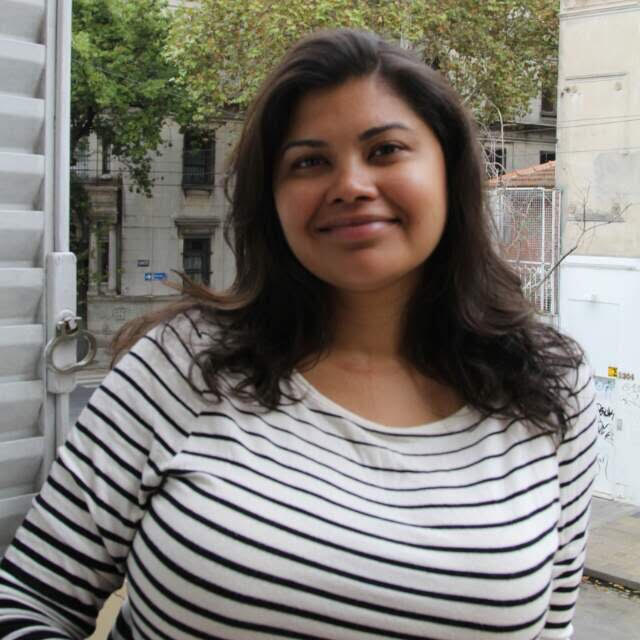 Tanya Barretto, PhD, is a Postdoctoral Research Fellow for the Ethics and Knowledge Translation piece of Mend the Gap. Dr. Barretto received her BSc in Biochemistry from Concordia University, Montreal, her MSc in Biochemistry from the University of Essex, England and her PhD in Medical Sciences from the University of Toronto. She plans to use her basic science background in regenerative medicine in neurotrauma models of spinal cord injury and traumatic brain injury to drive the ethics and knowledge translation aspects of Mend the Gap at Neuroethics Canada. In her free time, Dr. Barretto can be found travelling to explore off the beaten track locations.
Tanya Barretto, PhD, is a Postdoctoral Research Fellow for the Ethics and Knowledge Translation piece of Mend the Gap. Dr. Barretto received her BSc in Biochemistry from Concordia University, Montreal, her MSc in Biochemistry from the University of Essex, England and her PhD in Medical Sciences from the University of Toronto. She plans to use her basic science background in regenerative medicine in neurotrauma models of spinal cord injury and traumatic brain injury to drive the ethics and knowledge translation aspects of Mend the Gap at Neuroethics Canada. In her free time, Dr. Barretto can be found travelling to explore off the beaten track locations.
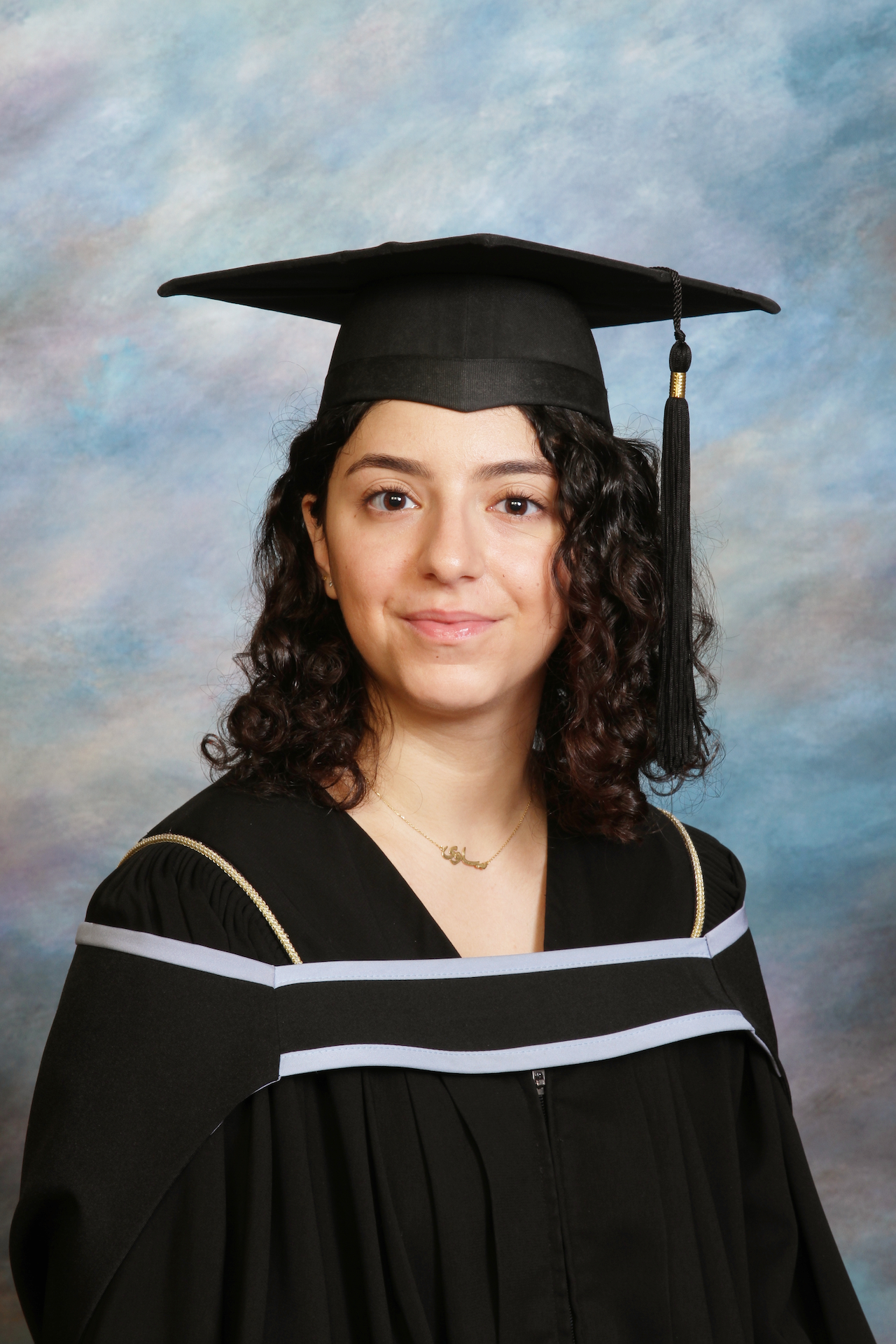 Salwa Malhas, BSc, is a Research Assistant who supports the Ethics & Knowledge Translation initiatives for the Mend the Gap project within Neuroethics Canada. She completed a degree in Integrated Sciences at the University of British Columbia, integrating Behavioural Neuroscience, Ethics and Human Physiology. She hopes to contribute to an intersectional landscape of ethics research in the field of neuroscience. She is fond of photography, yoga, concerts, cafes and travelling.
Salwa Malhas, BSc, is a Research Assistant who supports the Ethics & Knowledge Translation initiatives for the Mend the Gap project within Neuroethics Canada. She completed a degree in Integrated Sciences at the University of British Columbia, integrating Behavioural Neuroscience, Ethics and Human Physiology. She hopes to contribute to an intersectional landscape of ethics research in the field of neuroscience. She is fond of photography, yoga, concerts, cafes and travelling.
 Reina R. Nadler, JD, MA, is a PhD candidate at the University of British Columbia’s Peter A. Allard School of Law, and previously taught courses including Law and Neuroscience at the University of Ottawa’s Common Law Section. Reina's studies have been supported by a Vanier Canada Graduate Scholarship and by the Donald N. Byers Memorial Prize for Killam Doctoral Scholars. Her doctoral research critically evaluates law’s uptake of neurotechnology through the lens of democratic theory. Reina also writes on topics at the intersection of neuroethics and trans studies; her earlier work can be found under her legal name, Roland Nadler.
Reina R. Nadler, JD, MA, is a PhD candidate at the University of British Columbia’s Peter A. Allard School of Law, and previously taught courses including Law and Neuroscience at the University of Ottawa’s Common Law Section. Reina's studies have been supported by a Vanier Canada Graduate Scholarship and by the Donald N. Byers Memorial Prize for Killam Doctoral Scholars. Her doctoral research critically evaluates law’s uptake of neurotechnology through the lens of democratic theory. Reina also writes on topics at the intersection of neuroethics and trans studies; her earlier work can be found under her legal name, Roland Nadler.
 Stuti Sheth, BA, is a Research Assistant at Neuroethics Canada, working under the supervision of Dr. Judy Illes. She recently completed her undergraduate degree in Cognitive Systems, where her interdisciplinary studies piqued her interest in Neuroethics. In the Fall of 2025, she will be pursuing a Master’s in Data Science, with the goal of combining ethical research practices with data-driven insights in health and cognitive science.
Stuti Sheth, BA, is a Research Assistant at Neuroethics Canada, working under the supervision of Dr. Judy Illes. She recently completed her undergraduate degree in Cognitive Systems, where her interdisciplinary studies piqued her interest in Neuroethics. In the Fall of 2025, she will be pursuing a Master’s in Data Science, with the goal of combining ethical research practices with data-driven insights in health and cognitive science.
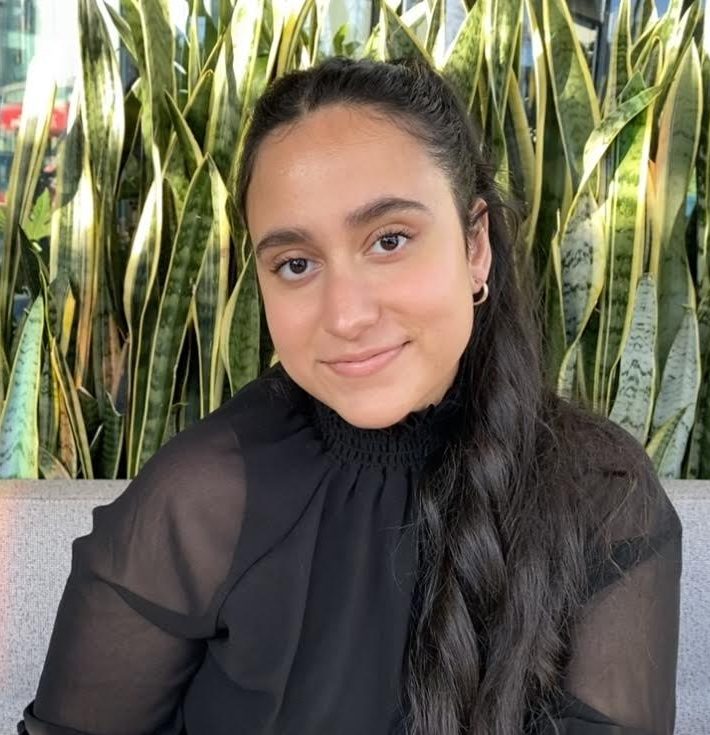 Harjeev Sudan, BSc, is a PhD student in the Neuroscience program co-supervised by Dr. Judy Illes and Dr. Mypinder Sekhon. She is interested in the intersection of neuroscience, ethics, and public health to inform public policy and improve clinical interventions and care. Her PhD will focus on opioid overdose-related brain injury and the related ethics and equity considerations.
Harjeev Sudan, BSc, is a PhD student in the Neuroscience program co-supervised by Dr. Judy Illes and Dr. Mypinder Sekhon. She is interested in the intersection of neuroscience, ethics, and public health to inform public policy and improve clinical interventions and care. Her PhD will focus on opioid overdose-related brain injury and the related ethics and equity considerations.
 Marianne Claire Bacani, BA, CMP-HC, HMCC, is an Events and Operations Director at Neuroethics Canada, University of British Columbia (UBC). Marianne received her B.A. in Psychology with a minor in Philosophy at UBC in 2012. She obtained her Certified Meeting Professional (CMP) designation in 2019, and her CMP-Healthcare designation in 2024, both from the Events Industry Council. She also completed her Healthcare Meeting Compliance certification from the Meeting Professionals International in 2024. In addition to managing all aspects of event planning, including communications, production, and guest engagement, Marianne also oversees finance, administrative, general communications, graphic design, and basic human-resource related matters at Neuroethics Canada. With more than eleven years of planning, organizing and executing high-profile local, national, and global medical and community events, Marianne ensures the consistent delivery of quality events following policies and service industry standards. She brings her passion for knowledge dissemination and community engagement to her active work with local non-profit organizations who promote health literacy, citizenship, the performing arts, and the empowerment of women. Marianne illustrates her eagerness for work excellence by continually embracing new opportunities to improve her professional and leadership skills.
Marianne Claire Bacani, BA, CMP-HC, HMCC, is an Events and Operations Director at Neuroethics Canada, University of British Columbia (UBC). Marianne received her B.A. in Psychology with a minor in Philosophy at UBC in 2012. She obtained her Certified Meeting Professional (CMP) designation in 2019, and her CMP-Healthcare designation in 2024, both from the Events Industry Council. She also completed her Healthcare Meeting Compliance certification from the Meeting Professionals International in 2024. In addition to managing all aspects of event planning, including communications, production, and guest engagement, Marianne also oversees finance, administrative, general communications, graphic design, and basic human-resource related matters at Neuroethics Canada. With more than eleven years of planning, organizing and executing high-profile local, national, and global medical and community events, Marianne ensures the consistent delivery of quality events following policies and service industry standards. She brings her passion for knowledge dissemination and community engagement to her active work with local non-profit organizations who promote health literacy, citizenship, the performing arts, and the empowerment of women. Marianne illustrates her eagerness for work excellence by continually embracing new opportunities to improve her professional and leadership skills.
 Viorica Hrincu, MSc, is a research assistant at Neuroethics Canada. Her early training was a BSc in Honours Cell Biology at the University of Alberta. She then studied in the Cognitive Systems program at UBC, and later received her MSc in Neuroethics through the Interdisciplinary Studies program. Viorica is interested in all things technology and ethics, especially involving the brain. Currently, her focus is on regulations and decision-making surrounding emerging technologies both in the workplace and in health care. In her free time, Viorica reads poetry, learns French, and enjoys beautiful Vancouver.
Viorica Hrincu, MSc, is a research assistant at Neuroethics Canada. Her early training was a BSc in Honours Cell Biology at the University of Alberta. She then studied in the Cognitive Systems program at UBC, and later received her MSc in Neuroethics through the Interdisciplinary Studies program. Viorica is interested in all things technology and ethics, especially involving the brain. Currently, her focus is on regulations and decision-making surrounding emerging technologies both in the workplace and in health care. In her free time, Viorica reads poetry, learns French, and enjoys beautiful Vancouver.
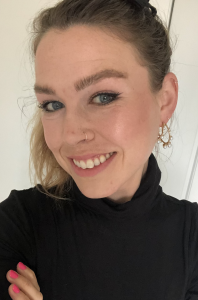 Susanna Martin, HBSc, is a research assistant at the NEST lab supporting Mallorie Tam's evaluation of the Alzheimer Society of B.C's First Link dementia support programme. Susanna obtained her BSc (Hons) in Occupational Therapy in 2008 from Robert Gordon University in Aberdeen, Scotland. She worked in a number of clinical specialities, her most favorite being trauma, neurology and neurosciences. Prior to moving to Canada, Susanna also worked as a wellness coordinator developing community based projects to support the health and wellbeing of older adults and their care partners. She has a creative background and is particularly interested in how the emerging field of neuroaesthetics may be utilized to enhance user experiences and inform service design. Susanna enjoys listening to podcasts, singing loudly whilst driving, practicing yoga, and taking long walks on the beach with her dog.
Susanna Martin, HBSc, is a research assistant at the NEST lab supporting Mallorie Tam's evaluation of the Alzheimer Society of B.C's First Link dementia support programme. Susanna obtained her BSc (Hons) in Occupational Therapy in 2008 from Robert Gordon University in Aberdeen, Scotland. She worked in a number of clinical specialities, her most favorite being trauma, neurology and neurosciences. Prior to moving to Canada, Susanna also worked as a wellness coordinator developing community based projects to support the health and wellbeing of older adults and their care partners. She has a creative background and is particularly interested in how the emerging field of neuroaesthetics may be utilized to enhance user experiences and inform service design. Susanna enjoys listening to podcasts, singing loudly whilst driving, practicing yoga, and taking long walks on the beach with her dog.
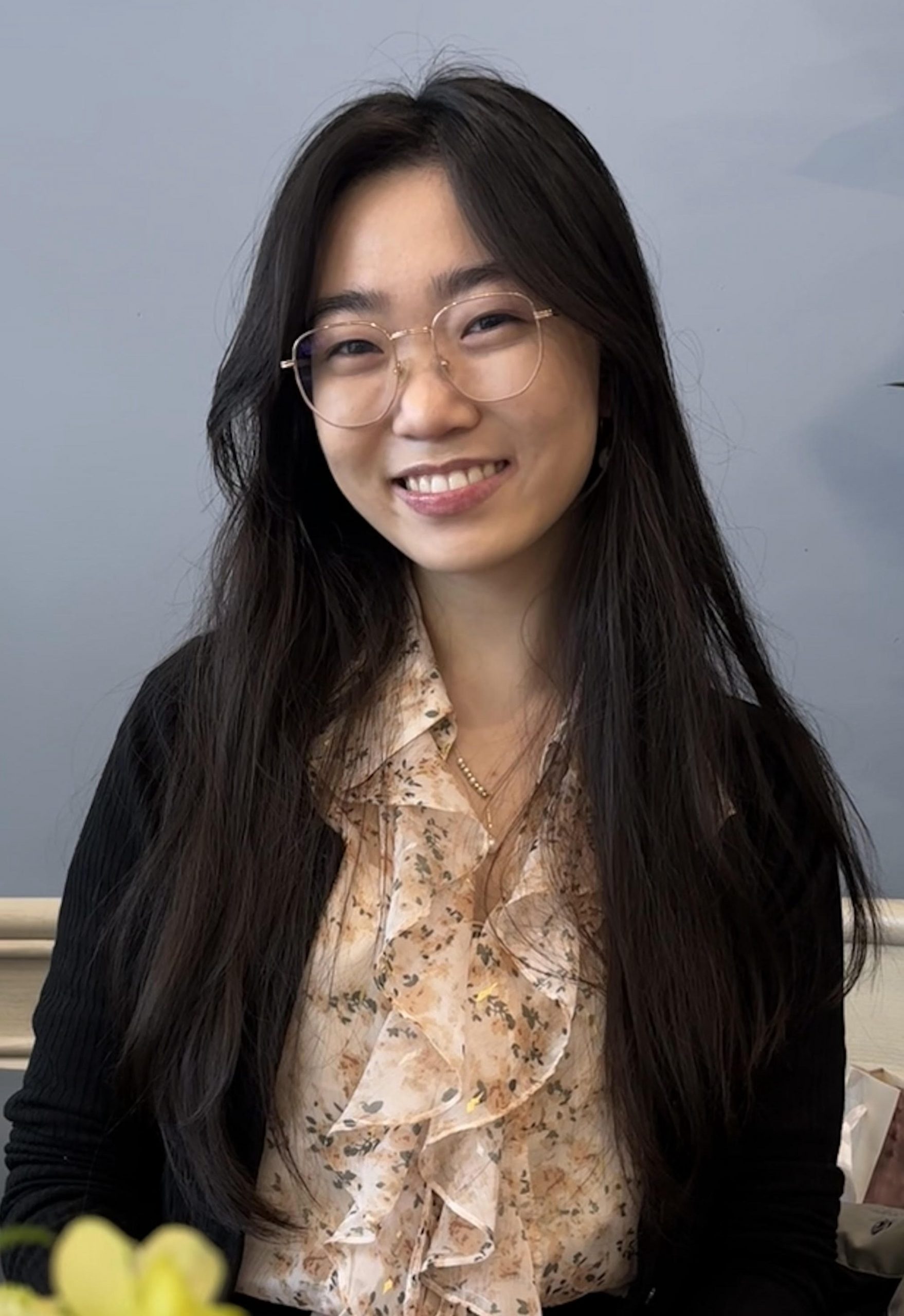 Angela Peng, is an undergraduate research assistant in the NEST Lab under the supervision of Dr. Julie Robillard. She is currently a third-year undergraduate student pursuing a B.A. in Psychology at the University of British Columbia. Angela is deeply passionate about mental health advocacy and the role of technology in enhancing patient experiences. Her aspirations include further education in clinical child and adolescent psychology, focusing on the implementation of psychosocial treatments in pediatric hospitals to enhance patient experiences and alleviate anxiety. In her free time, Angela enjoys reading, singing karaoke with friends and family, and engaging in new craft projects, such as bookbinding.
Angela Peng, is an undergraduate research assistant in the NEST Lab under the supervision of Dr. Julie Robillard. She is currently a third-year undergraduate student pursuing a B.A. in Psychology at the University of British Columbia. Angela is deeply passionate about mental health advocacy and the role of technology in enhancing patient experiences. Her aspirations include further education in clinical child and adolescent psychology, focusing on the implementation of psychosocial treatments in pediatric hospitals to enhance patient experiences and alleviate anxiety. In her free time, Angela enjoys reading, singing karaoke with friends and family, and engaging in new craft projects, such as bookbinding.
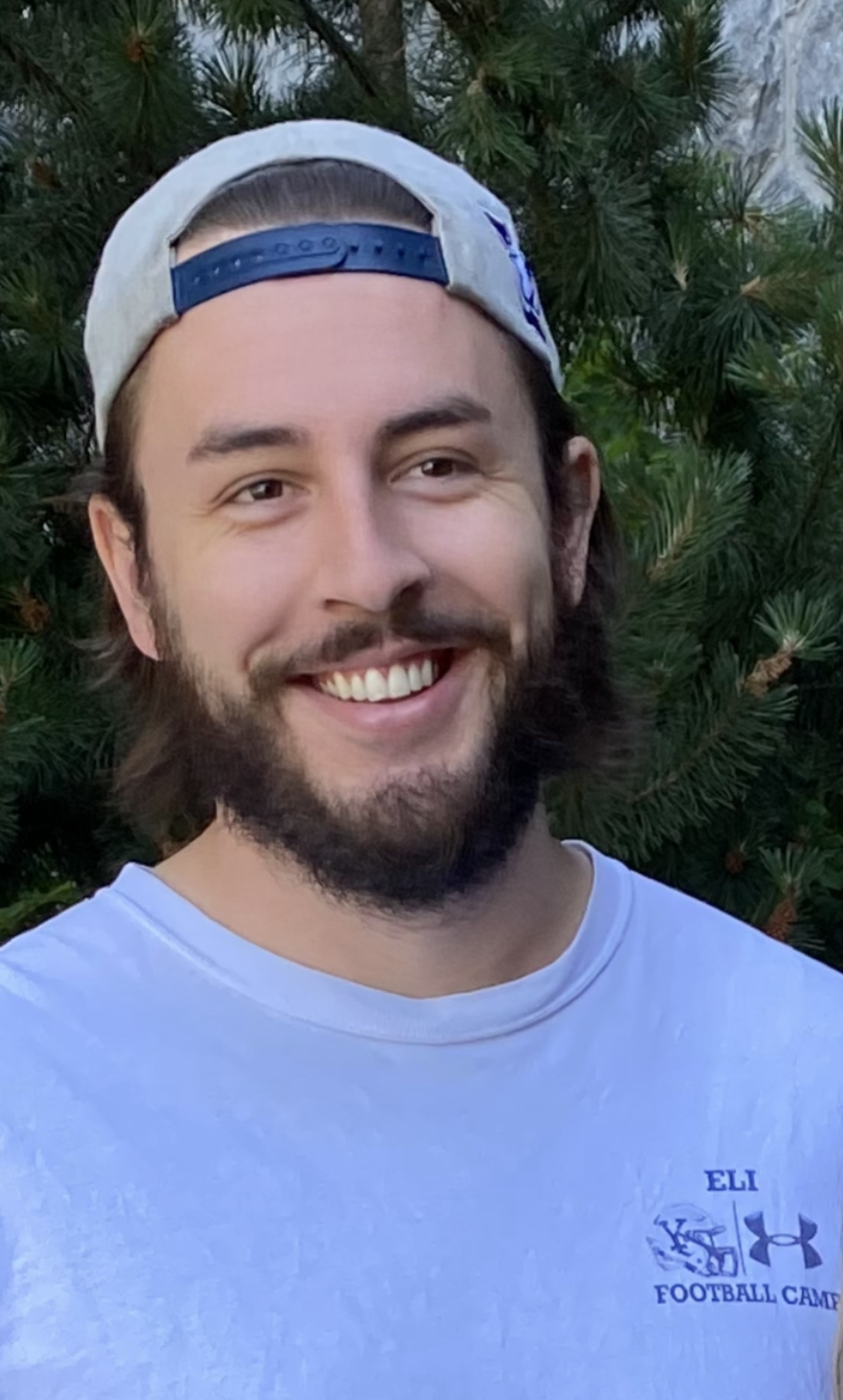 Jordan Stevenson, MSc, is a doctoral student in the faculty of medicine at the University of British Columbia under the supervision of Julie Robillard. He is interested in how technology and exercise can be leveraged to improve pediatric patient experience/outcomes. Outside of work, he likes to hug his friends at jiu-jistu and watch reality TV with his girlfriend.
Jordan Stevenson, MSc, is a doctoral student in the faculty of medicine at the University of British Columbia under the supervision of Julie Robillard. He is interested in how technology and exercise can be leveraged to improve pediatric patient experience/outcomes. Outside of work, he likes to hug his friends at jiu-jistu and watch reality TV with his girlfriend.
 Mallorie Tam, BSc, is a Research Program Manager in the NEST Lab. She received her BSc in Mental Health Science and Sociology at the University of Toronto, and has since lived and worked in London, England before moving to Vancouver, BC. She is an expert in qualitative research, leading projects that explore the lived experiences of older adults living with dementia and their care partners. Her work also extends to the intersection of youth mental health and the impact of social media. Outside of work, you can spark up a conversation with Mallorie about her dog, travelling, video games, and yummy food.
Mallorie Tam, BSc, is a Research Program Manager in the NEST Lab. She received her BSc in Mental Health Science and Sociology at the University of Toronto, and has since lived and worked in London, England before moving to Vancouver, BC. She is an expert in qualitative research, leading projects that explore the lived experiences of older adults living with dementia and their care partners. Her work also extends to the intersection of youth mental health and the impact of social media. Outside of work, you can spark up a conversation with Mallorie about her dog, travelling, video games, and yummy food.
 Katelyn Teng, is an undergraduate research assistant in the NEST Lab under the supervision of Dr. Julie Robillard. She is pursuing a BSc in Neuroscience at the University of British Columbia, and is passionate about mental health advocation and technology’s role in patient experience. Outside of work and school, she can be found baking sweet treats, collecting her favourite vinyl records, and with friends and family.
Katelyn Teng, is an undergraduate research assistant in the NEST Lab under the supervision of Dr. Julie Robillard. She is pursuing a BSc in Neuroscience at the University of British Columbia, and is passionate about mental health advocation and technology’s role in patient experience. Outside of work and school, she can be found baking sweet treats, collecting her favourite vinyl records, and with friends and family.
 Allan Yao, is a Work Learn Research Assistant in the NEST Lab under the supervision of Dr. Julie Robillard. He is entering his second year of study pursuing a BSc in Integrated Sciences at the University of British Columbia, and is passionate about the interplay between technology and pediatric patient experiences. In his free time, he enjoys spending time with friends and watching nature/true crime documentaries.
Allan Yao, is a Work Learn Research Assistant in the NEST Lab under the supervision of Dr. Julie Robillard. He is entering his second year of study pursuing a BSc in Integrated Sciences at the University of British Columbia, and is passionate about the interplay between technology and pediatric patient experiences. In his free time, he enjoys spending time with friends and watching nature/true crime documentaries.
Scientific Advisory Board
Scientific Advisory Board
A. Jon Stoessl, M.D. (Scientific Advisory Board Chair), Co-Director, Djavad Mowafaghian Centre for Brain Health, and Professor, Division of Neurology, Department of Medicine, Faculty of Medicine, University of British Columbia
Hervé Chneiweiss, M.D., Ph.D., Chair, International Bioethics Committee (UNESCO), and Director, Neuroscience Paris Seine, Université Pierre et Marie Curie
Sam Douglas, B.A., Support Analyst, IT Department, Praxis Spinal Cord Institute
Joseph J. Fins, M.D., M.A.C.P., F.R.C.P., E. William Davis Professor of Medical Ethics & Chief, Division of Medical Ethics, Weill Cornell Medical College
Anthony Phillips, C.M., Ph.D., F.R.S.C., Professor, Department of Psychiatry, University of British Columbia
Rémi Quirion, Ph.D., O.C., F.R.S.C., C.Q., Scientifique en chef du Québec/Chief Scientist of Quebec, Fonds de recherche du Québec
Catherine Roome, P.Eng. FEC ICD.D, President and Chief Executive Officer, Technical Safety BC
Scientific Advisory Board - Alumni
Jehannine Austin, Ph.D., M.Sc., C.C.G.C./C.G.C., Canada Research Chair in Translational Psychiatric Genomics, Department of Psychiatry and Medical Genetics, University of British Columbia
Mary Anne Bobinski, Ph.D., Dean, Faculty of Law, Emory University
Michael Burgess, Ph.D., Professor and Chair in Biomedical Ethics, School of Population and Public Health, University of British Columbia
Art Caplan, Ph.D., Drs. William F. and Virginia Connolly Mitty Professor of Bioethics, Director Division of Medical Ethics, Department of Population Health, School of Medicine, New York University
Max Cynader, Ph.D., O.B.C., F.S.C., F.C.A.H.S., Professor, Faculty of Medicine, University of British Columb
Howard Feldman, M.D., F.R.C.P., Professor, Faculty of Medicine, University of British Columbia
Judith G. Hall, O.C., M.D. (Former Scientific Advisory Board Chair), Professor Emerita, Departments of Pediatrics and Medical Genetics, University of British Columbia
Gladys Maestre, M.D., Ph.D., Director, RGV Alzheimer’s Disease Resource Center for Minority Aging Research, University of Texas
Patricia North, Community Stakeholder
Affiliates
Affiliates
Tania Bubela, J.D., Ph.D., is Associate Professor and Associate Dean (Research) in the School of Public Health and Alberta School of Business at the University of Alberta. Prof. Bubela's research focuses on knowledge translation in health, biotechnology and new technologies in biomedicine; on impacts of commercialisation/open science and intellectual property policies on scientific culture as well as knowledge and technology flows in health biotechnology; and on use of commons theory to analyse the institutional development of bioresource and data repositories for biomedical research.
Laura Cabrera, Ph.D., is an Associate Professor of Engineering Science and Mechanics, and Dorothy Foehr Huck and J. Lloyd Huck Early Career Chair in Neuroethics at the Pennsylvania State University. Dr. Cabrera's interests focus on brain science and neural engineering, neuroethics (ethical, social, and policy implications of neuroscience advances and neurotechnologies).
Jennifer Chandler, L.L.M., is a Bertram Loeb Research Chair and Full Professor of Law at the University of Ottawa, where she teaches mental health law and neuroethics, medical legal issues, tort law, and legal philosophy. Her research focuses on the law and ethics of neuroscience and other advances in biology and medicine. Specific research projects relate to legal issues related to memory, the use of neuroscientific and behavioural genetic evidence in Canadian courts, the law and ethics of legally-coerced consent to medical treatment, organ donation policy and the impact of the popularization of neuroscience on end of life decision-making and public support for organ donation, and the law and ethics of scientific inquiry and restrictions on scientific research.
Winston Chiong, M.D., Ph.D., is an Assistant Professor in the UCSF Weill Institute for Neurosciences, Memory and Aging Center. A behavioral neurologist and neuroethicist by training, Dr. Chiong’s research interests lie at the intersection of philosophy, clinical medicine and cognitive neuroscience. His current projects concern the influence of aging and disease on brain structures involved in financial and medical decisions, and the ethical implications of novel neurotechnologies that modulate brain function. Dr. Chiong is also the Associate Director of the UCSF/UC Hastings Consortium on Law, Science and Health Policy, Co-Chair of the UCSF Department of Neurology Diversity Committee, and a member of the American Academy of Neurology’s Ethics, Law and Humanities Committee and the Neuroethics Working Group of the NIH BRAIN (Brain Research through Advancing Innovative Neurotechnologies) Multi-Council Working Group.
Mary Connolly M.B., B.Ch., F.R.C.P.(C.), F.R.C.P.(I.), F.R.C.P.(Edin.) , is a Clinical Professor of Pediatrics (Neurology) at UBC, Head of Pediatric Neurology, Director of The Comprehensive Epilepsy Program and a Clinician Investigator at BC Children’s Hospital. Her clinical and research interests include outcomes following epilepsy surgery in children, tuberous sclerosis complex, Dravet syndrome and psychiatric co-morbidity in children with epilepsy. Other interests include telehealth to improve access to epilepsy care in BC and integration of next generation genetic testing to improve neurologic outcomes in children with epilepsy.
Mark J. Harrison, Ph.D. , is an Assistant Professor at the Faculty of Pharmaceutical Sciences at the University of British Columbia in Vancouver, Canada. He leads the Initiative for Sustainable Health Care, a program of health economics and outcomes research focused on the appropriate treatment of people with chronic diseases and the evaluation of policy interventions. Dr. Harrison is also a Scientist at the Centre for Health Evaluation and Outcome Sciences at St. Paul’s Hospital, Vancouver, and an Affiliate of Arthritis Research Canada. Before moving to Canada, Dr. Harrison was a Senior Research Fellow at Manchester Centre for Health Economics at the University of Manchester. He started his career working at the Arthritis Research UK Epidemiology Unit, also at the University of Manchester, where he completed his PhD in 2008.
George Ibrahim, M.D., Ph.D., F.R.C.S.C., is an Assistant Professor in the Department of Surgery, the Institute of Biomaterials and Biomedical Engineering and the Institute of Medical Science at the University of Toronto. He is a pediatric neurosurgeon at the Hospital for Sick Children. Dr. Ibrahim's research lab focuses on brain connectomics in children with epilepsy with a view towards understanding and modulating network impairments in affected children. He is interested in ethical issues in surgical decision-making and the translation of novel biomarkers to clinical care.
Lauren E. Kelly, Ph.D., C.C.R.P., is an Assistant Professor in the Departments of Pedaitrics and Child Health and Pharmacology at the University of Manitoba. Dr. Kelly is the Scientific Director for the Canadian Childhood Cannabinoid Clinical Trials (C4Trials.org) Consortium. Her research program focuses on pediatric clinical pharmacology and family-informed clinical trial methods.
Brian K. Kwon, M.D., F.R.C.S.C., Ph.D., is Associate Professor in the Department of Orthopaedics – Faculty of Medicine at the University of British Columbia. Dr. Kwon’s research interests focus on spinal cord injury, biomarkers, clinical trials, neuroprotection, spine surgery and translational research.
Nir Lipsman M.D., Ph.D., F.R.C.S.C., is a neurosurgeon and scientist at Sunnybrook Health Sciences Center and Sunnybrook Research Institute, and an Associate Professor in the Department of Surgery at the University of Toronto. Over the last 10 years, Dr. Lipsman has helped develop several clinical applications of MR-guided focused ultrasound (FUS) in novel indications, including among the world’s first experience of FUS in essential tremor, obsessive-compulsive disorder, and major depression, as well as the world’s first application of FUS-mediated blood brain barrier (BBB) opening in Alzheimer’s Disease, ALS, primary and secondary brain tumours. He is currently the Director of Sunnybrook’s Harquail Center for Neuromodulation, and the Clinical Director of Sunnybrook’s Focused Ultrasound Centre of Excellence.
Ralph Matthews, Ph.D., is Professor in the Department of Sociology at the University of British Columbia. Dr. Matthews’ primary research interests focus on the relationship between social change and economic development at a community and regional level, and in assessing the ways in which public policy influences that relationship.
Robert P. Naftel M.D., is an Assistant Professor in the Department of Neurological Surgery at the Monroe Carell Jr. Children’s Hospital at Vanderbilt and the Vanderbilt University Medical Center. His practice encompasses the entirety of the specialty, but clinical and research interests include pediatric hydrocephalus, epilepsy surgery and surgery for childhood spasticity. He has trained in minimally invasive endoscopic techniques for the treatment of hydrocephalus, brain tumors and spinal disorders. Dr. Naftel participates as a site investigator in the multi-institutional Hydrocephalus Clinical Research Network. He currently serves on the board of directors and as the medical director for the Epilepsy Foundation of Middle and West Tennessee. His additional research interests also focus on patient satisfaction, patient education, and the use of technology and social media for patient outreach.
Tim Oberlander, M.D., F.R.C.P.C., Professor (Tenure) in the Department of Pediatrics at the University of British Columbia and Co-Head of the Developmental Neurosciences & Child Health at the Child & Family Research Institute. Dr. Oberlander's main areas of research focus on the developmental effects of prenatal psychotropic medication exposure; biobehavioral neural gradients in child development and community context; and pain and children with developmental disabilities.
Adrian Owen, Ph.D., is the Canada Excellence Research Chair in Cognitive Neuroscience and Imaging at The Brain and Mind Institute, Western University, Canada. Dr. Owen's research combines neuroimaging (MRI and EEG), with cognitive studies in brain-injured patients and healthy participants. He studies patients who have sustained brain injuries that result in disorders of consciousness. He also studies patients with neurodegenerative diseases in order to understand more about the causes and consequences of the memory, perception and reasoning problems that many of them experience. Finally, Dr. Owen develops web-based tools for the assessment of cognitive function, both in healthy participants and in patients with disorders of the brain.
Eric Racine, Ph.D., is Director of the Neuroethics Research Unit and Associate Research Professor at the Institut de recherches cliniques de Montréal. He also holds academic appointments at the University of Montréal (Medicine and Bioethics) and McGill University (Biomedical ethics, Neurology and Neurosurgery, Medicine). Dr. Racine's research interests span a range of topics and methods with the goal of developing a pragmatic framework for bioethics based on empirical research and exploring its implications in concrete questions related to the ethical application of neuroscience in research, patient care, and public policy.
Peter B. Reiner, V.M.D., Ph.D., is Professor at Department of Psychiatry, a member of the Centre for Artificial Intelligence Decision-making and Action , and founder of the Neuroethics Collective, a virtual think tank of scholars who share an interest in issues of neuroethical import. He went on to become founder, President and CEO of Active Pass Pharmaceuticals, and in 2007 co-founded the National Core for Neuroethics. A champion of applying rigorous quantitative methods to neuroethical issues, Professor Reiner is frequently quoted in the media and has testified before the Presidential Commission for the Study of Bioethical Issues. His current research is supported by a grant from the SSHRC entitled The Mind in Your Pocket. View Dr. Reiner's Google Scholar Page.
David Silver, Ph.D., holds the Chair in Business and Professional Ethics in the W. Maurice Young Centre in Applied Ethics and the Sauder School Business. He has done work in collective and corporate responsibility and the connections between applied ethics and basic moral theory. His current work is on the proper role of business in democratic society.
Aline Talhouk, Ph.D., is collaborating with Neuroethics Canada to survey commonly held views on the use of body and brain sensors that monitor employees in the workplace, and to inform the development of policy and best practice guidelines for their future use. As a PhD student, Dr. Talhouk worked at Neuroethics Canada on a survey identifying perceived barriers to ethics in neuroscience. Today, she is an assistant professor in the department of Obstetrics & Gynecology and the director of data science and informatics at OVCARE, BC’s ovarian and gynecological cancer research program. She completed her PhD in Statistics at the University of British Columbia in 2013 with a focus on computational statistics and machine learning. Since then, she has been focused on developing and implementing predictive models to improve patient care, with a special focus on women’s health.
Mark Turin, Ph.D., is a linguistic anthropologist, and an Associate Professor at the University of British Columbia. He is cross-appointed between the Institute for Critical Indigenous Studies and the Department of Anthropology. Dr. Turin writes and teaches on language reclamation, revitalization, documentation and conservation; language mapping, policies, politics and language rights; orality, archives, digital tools and technology. Indigenous methodologies and decolonial practice inform and shape his teaching and research.
Hendrik F. M. Van der Loos, Ph.D., is Associate Professor in the Department of Mechanical Engineering at the University of British Columbia. Dr. Van der Loos’ research interests are robotics (rehabilitation robotics, human-robot interaction, design for safety), design methodology and design coaching, and roboethics.
Paul van Donkelaar, Ph.D., is a Professor in the School of Health and Exercise Sciences at UBC’s Okanagan Campus. Prof. van Donkelaar’s research focuses on better understanding brain dysfunction following traumatic brain injury in contact sport athletes and survivors of intimate partner violence.
Lawrence Ward, Ph.D., is Professor in the Department of Psychology at the University of British Columbia. Dr. Ward’s research interests focus on cognitive neuroscience of attention and consciousness with special emphasis on EEG and MEG studies of neuronal synchronization; psychophysics, biophysics and general theory of stochastic resonance; psychophysics and cognitive neuroscience of tinnitusl; neural plasticity; nonlinear dynamical systems theory and its applications in cognitive neuroscience.
Cheryl Wellington, Ph.D., is Professor in the Department of Pathology and Laboratory Medicine, Djavad Mowafaghian Center for Brain Health at the University of British Columbia. She is also Principal Investigator at the International Collaboration on Repair Discoveries at Vancouver General Hospital and Associate Member of the UBC School of Biomedical Engineering. Dr. Wellington’s research interests are highly multipdisciplinary with major efforts in the fields of Alzheimer’s Disease (AD) and Traumatic Brain Injury (TBI). With respect to both AD and TBI programs, her laboratory is the leading Canadian site for research on blood biomarkers using the Quanterix single molecule array (Simoa) platform. Her work on AD focuses mainly on how lipoproteins affect AD pathogenesis, with major projects focused on apolipoprotein E (apoE). For the AD program, her laboratory uses a combination of animal models and in vitro platforms, including pioneering a human-based 3D tissue engineered model of perfusable cerebral vessels surrounded by astrocytes and neurons. Along with Dr. Peter Cripton, a Mechanical Engineer, Dr. Wellington developed the CHIMERA (Closed Head Model of Engineered Rotational Acceleration) animal model of TBI that is currently operational for mice, rats and ferrets. Dr. Wellington holds multiple leadership positions in both the dementia and neurotrauma communities, including the Canadian Traumatic Brain Injury Research Consortium, the International Traumatic Brain Injury Research Consortium, the Canadian Consortium for Neurodegeneration in Aging, and Cure Alzheimer Fund ApoE Consortium.
Past Affiliates
Timothy Caulfield, L.L.M., is Professor and Canada Research Chair in Health Law and Policy in the Faculty of Law and the School of Public Health at the University of Alberta. Prof. Caulfied's research involve projects that explore the ethical, legal and health policy issues associated with a range of topics, including stem cell research, genetics, patient safety, the prevention of chronic disease, obesity policy, the commercialization of research, complementary and alternative medicine and access to health care.
Eric H. Chudler, Ph.D., is a research neuroscientist interested in how the brain processes information about pain and nociception. He is currently a research associate professor in the Departments of Bioengineering, Anesthesiology & Pain Medicine and the Graduate Program of Neurobiology and Behavior at the University of Washington. Recently he became the executive director of the NSF Engineering Research Center for Sensorimotor Neural Engineering. Eric also works with other neuroscientists and classroom teachers to develop educational materials to help young students learn about the brain.
Susan Cox, Ph.D., is Associate Professor at The W. Maurice Young Centre for Applied Ethics at UBC. Dr. Cox specializes in qualitative health research and is currently conducting research on the meaning and experience of being a human subject in health research and, more recently, on the use of arts-based methods in health research. Dr. Cox serves on the Research Ethics Board for Emily Carr University of Art and Design and the Ethics Task Force for the Society for the Arts in Healthcare. When times permits, she writes poetry and is an aspiring pastry chef.
Gidon Felsen, Ph.D., is an Associate Professor in the Physiology and Biophysics Department and an associate faculty member in the Center for Bioethics and Humanities at the University of Colorado School of Medicine, and a Faculty Scholar of the Greenwall Foundation's Program in Bioethics . His laboratory studies the neural mechanisms of decision making using electrophysiological, behavioral, molecular, and quantitative approaches. His related interest in bioethics starts from the observation that people make predictably poor decisions in particular contexts. A range of strategies has been proposed to help people improve these sorts of decisions. Dr. Felsen’s research examines how the ethics and the efficacy of these “decisional enhancement” strategies can be informed by what we know about how the brain makes decisions, and how this impact our conception of autonomy.
Dan Goldowitz, Ph.D., is Senior Scientist at the Centre for Molecular Medicine and Therapeutics, University of British Columbia, Canada Research Chair in Developmental Neurogenetics, and Scientific Director of NeuroDevNet. Dr. Goldowitz has pioneered approaches to ascertain the function of genes in brain and behaviour, and was a leading force in organizing researchers across the State of Tennessee in forming the Tennessee Mouse Genome Consortium which won one of three National Institute’s of Health awards with Dr. Goldowitz as Principal Investigator. These and other successes led the University of Tennessee to award Dr. Goldowitz an endowed chair of Neurosciences at UTHSC. Since his move to UBC, Dr. Goldowitz has maintained strong NIH- , CIHR- and foundation-funded research programs in the genetics of brain development and function, culminating in the establishment in 2009 of NeuroDevNet, a Networks of Centres of Excellence.
Anita Ho, Ph.D., is an Assistant Professor at the W. Maurice Young Centre for Applied Ethics, specializing in bioethics and research ethics. She is particularly interested in various concepts of trust and autonomy, health-care access and disparity, physician-patient relationship, minority care experience, decision-making models, cross-cultural ethics, disability and mental health ethics, and human rights issues. Her work in these areas has been supported by both the Social Sciences and Humanities Research Council (SSHRC) and the Canadian Institute of Health Research (CIHR). In addition to her position at the Centre, she is currently the Director of Ethics Services for Providence Health Care and associate chair/ethicist for the UBC Behavioral Research Ethics Board.
David Kaplan, Ph.D., is a Senior Scientist at The Hospital for Sick Children (SickKids) Research Institute and Professor in the Department of Molecular Genetics at the University of Toronto. Dr. Kaplan shares a lab with his wife, Dr. Freda Miller, working on how stem cells build and maintain the brain and influence cognition, and discovering drugs that mobilize our stem cells to enhance and repair the aging and injured brain and skin, and to treat childhood cancers. He is best known for co-discovering the signalling protein PI3-kinase (Cell 1987) and discovering the Trk/Nerve Growth Factor receptor when his lab was at the NIH (Nature, Science 1990).
Michael Krausz M.D., Ph.D., F.R.C.P.C., is Professor of Psychiatry, Epidemiology and Public Health at the University of British Columbia Dr. Krausz pioneered large-scale studies regarding mental illness among intravenous drug users, in particular the German Heroin trial, the largest randomized clinical trial in addiction research in Europe.
Freda Miller, Ph.D., is a Professor and Senior Scientist at the Hospital for Sick Children and the University of Toronto. She is best known for her studies of neural and dermal stem cells and for her work elucidating how growth factors regulate cell genesis, survival and growth in the nervous system. In recognition of this work, she has won numerous awards, and is an elected fellow of the AAAS and of the Royal Society of Canada. Dr. Miller has also founded two biotechnology companies and has significant experience in administrative roles, having served as Councillor, Secretary and Treasurer for the Society for Neuroscience, President of the Canadian Association for Neuroscience and President of the International Society for Developmental Neuroscience.
Edie Rasmussen, Ph.D., M.L.S., is Professor and Chair of School of Library, Archival and Information Studies at the University of British Columbia. Dr. Rasmussen’s research interests focus on digital libraries, data mining, bibliometrics and information retrieval in text, multimedia, and web environments.
Urs Ribary, Ph.D., is Professor of Psychology and BC LEEF Leadership Chair in Cognitive Neuroscience in Childhood Health and Development and professor at Simon Fraser University. He also holds faculty appointments in Pediatrics and Psychiatry at UBC, and is the director of the Behavioral and Cognitive Neuroscience Institute (BCNI) at SFU. His mission is to initiate and facilitate multimodal brain imaging research across disciplines and institutions to better understand the underlying neurophysiology of the human brain in health and disease. Especially, he is interested to incorporate functional brain network connectivity dynamics with structural and functional brain imaging to better characterize and quantify the detailed structural, functional and temporal connectivity and its alterations in cognitive disabilities and neuro-psychiatric pathologies including traumatic brain injury. The goal is to amplify team efforts towards translational objective neuro-diagnostic procedures for the human brain, to allow better monitoring and development of cognitive, pharmacological and surgical interventional strategies.
Christopher Thomas Scott, Ph.D., M.L.A., is the Dalton Tomlin Chair in Health Policy, Professor of Medicine, Medical Ethics, and Health Policy and the Associate Director of Health Policy at the Center for Medical Ethics and Health Policy at Baylor College of Medicine. He is an emeritus faculty of the Stanford University Center for Biomedical Ethics and former founding director of the Program on Stem Cells in Society. His research centers on the ethical, legal, and social implications of new biotechnologies.
Elizabeth M. Simpson, Ph.D., is Professor in the Department of Medical Genetics and Associate Professor in the Department of Psychiatry at UBC. Dr. Simpson is Project Leader for the Genome BC “CanEuCre: Genomic Resources Advancing Therapies for Brain Disorders”, which aims to develop new cre resources, a project that also incorporates research into the perceptions of gene therapy from online social media, led by Dr. Judy Illes. The overall goal of Dr. Simpson’s research program is to use genetically engineered mouse models to understand and improve treatment for human brain and behaviour disorders. Her approach is to study the genetics, behaviour, neurogenesis, and genome-wide transcription in mouse models of brain disorders. The expectation is that a clearer understanding of abnormal behaviour and brain pathologies in humans will lead to new and improved therapeutic strategies for these devastating conditions.
Alumni
Magda Aguiar, Ph.D.
Armaghan (Army) Alam
James A. Anderson, Ph.D.
Annika Ang
Payton Angus, BSc
Mary Arakelyan
Marcel Arcand, M.D., M. Sc.
Katherine Bailey, B.H.Sc.
Parteek Bal
Ela Bandari
Yemi Banjo, B.Sc., M.Sc.
Chris Barbey
Aiste Bartkiene, Ph.D.
Katherine Bassil
Shelly Benjaminy, Ph.D.
Stefanie Blain-Moraes, Ph.D., P.Eng.
Emily Borgelt, B.Sc., M.A.
Stephanie Bourne
Quinn Boyle, M.Sc.
Elana Brief, Ph.D.
Katherine Brown, B.ASc.
Lindsey Bruce, M.P.A.
Daniel Z. Buchman, Ph.D.
Kevin Budiman
Adrian Byram
Laura Cabrera, Ph.D.
Emanuel Cabral, B.A.
Robert V. Carlson, MBChB, PhD.
Noah Castelo, H.B.Sc.
Neil Chahal, B.Sc., M.H.A.
Michelle Chakraborti, M.Sc.
Eugene Chong
Iris Coates McCall, M.B.E.
Kevin Comerford, M.F.A., M.I.S.
Caitlin Courchesne, M.Sc.
Alonso Daboub
Jacqueline Davidson, Ph.D.
Nina Di Pietro, Ph.D.
Jill Dosso, Ph.D.
Olivia Edwards
Marleen Eijkholt, Ph.D.
Mahala English
Elise Ewing
Carole Federico, B.Sc.
Christopher Feehan, M.D.
Gidon Felsen, Ph.D.
Lydia Feng
Tanya Feng
Nick Fitz, B.A.
Alex Garnett, B.A., M.L.I.S.
Ben Gibbard, M.D., M.A., M.Sc., F.R.C.P.C.
Frederic Gilbert, Ph.D.
Samantha Go, B.A.
Ava Grier
Gabriella Guerra
Margot Gunning, MSc, JD
Louise Harding, B.Sc.
Konstantin Helmsauer
Sharmin Hossain, Ph.D.
Millie Huang
Karen Jacob, M.Sc.
Yu Fei Jiang
Thomas W. Johnson
Jessica Jun
Julia Kaal, M.Sc.
Katarzyna Kabacinska, BSc
Jaya Kailley, B.Sc.
Mehar Kang
Joshua Kandiah
Precilia Kong
Vera Khramova, B.A.Sc.
Jane Kim, B.Sc.
Jen-Ai Lai
Kiely Landrigan
Chloe Lau
Patricia Lau, B.Sc.
Kyrstin Lavelle
Ashley Lawson, B.ScH.
Catherine Lee
Grace Lee, Ph.D.
Cody Lo
Sofia Lombera, B.Sc.
Hayami Lou
Edel McGlanaghy, M.Sc.
Annika MacKenzie
Angela Machado
Jennifer Mackie, B.Sc., M.Sc.
Selina Mak, B.Com.
Praveena Manogaran
Vyshu Manohara, B.Sc.
Caterina Marra, B.Sc.
Ida Mattsson
Jacob McFarlane
Danny Mendelsohn, M.D.
Nicole Minielly, B.Sc.
Ania Mizgalewicz, B.A.
Tabitha Moses, M.S.
Vrinda Munjal
Emily R. Murphy, Ph.D.
Alejandra Negron Ortiz
Chris Ng
Altaira Northe, B.Sc.
Kalina Nowaczek
Anna Nuechterlein, B.A.Sc.
Arshita Pabbi
Sara Parke, B.A.
Alexandra Olmos Pérez, M.Sc.
Carlee Poleschuk, M.Sc.
Kevin Peters, M.A., Ph.D.
Robin Pierce, J.D., Ph.D.
Heather Piwowar, M.Eng., M.Sc., Ph.D.
Umamon Puangthong, M.D.
Stephanie Quon
Nikkie Randhawa, M.D.
Shaye Rathjen
Joanne Reimer, R.N., M.N.
Anna Riminchan
Dylan Roskams-Edris, B.Sc., M.H.E.
Ari Rotenberg, MSc
Theresa Roth
Katherine Roy
Mohsen Sadatsafavi, M.D, M.H.Sc.
Sophie Sargent
Kevin Sauve, B.Sc
Miles Schaffrick
Anna Schmitt
Christopher Thomas Scott, B.A., M.L.A., Ph.D.
Kimberly Sharpe, M.A.
Elaine Shi
Adam Shriver, Ph.D.
Aaron Sihoe
Laura Specker Sullivan, Ph.D.
Jona Specker, M.A.
Arlo Sporn
Shaun Stevenson, M.A.
Gabrielle Sunderland
Monica Ta
Aline Tabet, M.Sc.
Kate Tairyan, M.D., M.P.H.
Jordan Tesluk, Ph.D.
Farhad R. Udwadia, M.B.E.
Jason Valerio, M.Sc., M.D.
Omaris Vélez Acevedo
Ranga Venkatachary, Ph.D.
John Noel M. Viaña, M.Sc.
Kim Vu
Vlatka Vukojevic
Sophie Wang, M.P.H.
Louise Whiteley, Ph.D.
Alissa Wong
Julia Wu, B.Sc.
Haiger Ye
Alaa Yehia, B.Sc.
Grayden Zaleski
Jerry Yim
Cindy Zhang